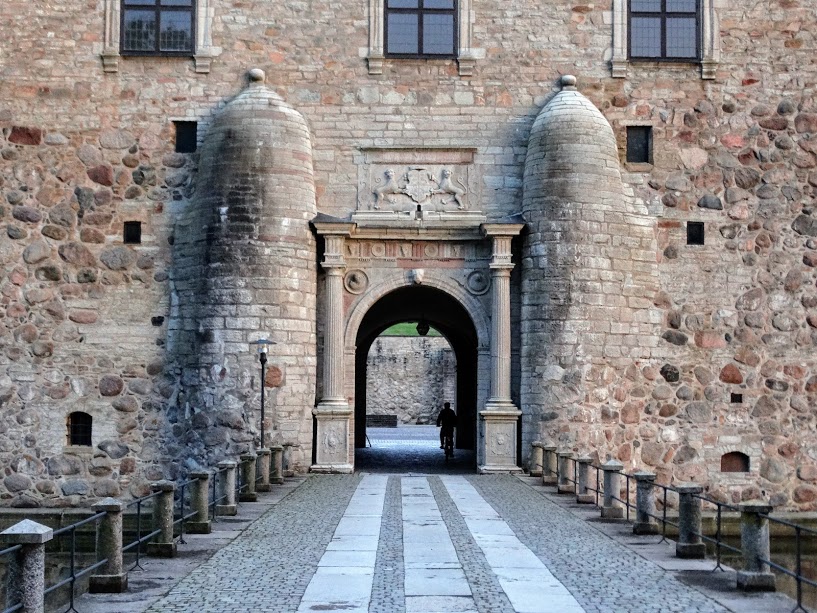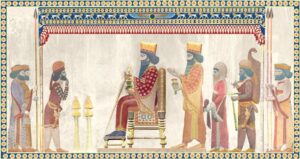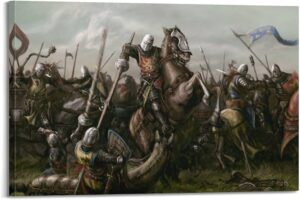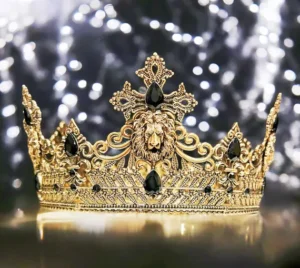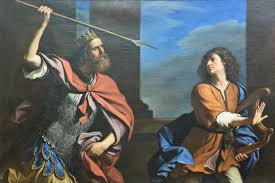Once saw a son of Sarhang (Son of Colonel/Commander) at the gate of the house of Aghlumush. He had an incredible level of intelligence, wit, understanding, and foresight, more than I could possibly describe. Even from a young age, the signs of his future greatness were clear on his face.
He was so smart, it was as if:
A star shone brightly above his head
In short, he became very highly regarded by the Sultan because he possessed both physical good looks and inner worth. As the wise men say: “True wealth comes from knowledge, not money, and true greatness comes from intellect, not age.”, however, others of his own kind grew jealous of his high position. They accused him of treason and worked very hard to have him killed, but they failed.
What harm can an enemy do if a friend is kind and supportive?
The King asked him, “Why are these people so hostile toward you?”, he replied, “Under your Majesty’s rule (may it last forever), I have pleased everyone except the envious person. The envious person will only be satisfied when three things happen: 1) my blessings disappear; 2) my favor with the King is lost; and 3) your Majesty’s kingdom falls.”
I have the ability, but I choose not to cause anyone grief. So what can I do for a jealous person? His mind is already sick from his (envious)
Die, O envious one, so your soul can find peace, for this torment Can only be escaped through death.
The miserable ones (the envious) constantly wish that the fortunate lose their blessings and status.
If the bat’s eye cannot see in the daylight, the sunbeam is not to blame!
To tell the truth, a thousand bats’ eyes that can’t see the midday sun are better than one jealous eye that sees and hates what it sees
رأيتُ ابن قائدٍ عند بابِ دارِ أُغْلُمُش (أُغْلُومُشْ خان)، كان له عقلٌ وذكاءٌ وفَهْمٌ وفِطْنةٌ زائدةٌ على الوصفِ، ومنذ عهدِ صِغَرِهِ ظهرتْ آثارُ العظمةِ على جبهتهِ.
من شد ذكاءهِ، كأن على رأسه
يَشعُّ في العلوِ نَجمٌ
بالمختصرِ، صار مَقبولاً في عين السلطانِ، إذ كان له جَمالُ الصورةِ والقيمةِ، وقد قال الحكماء: «الغَنى بالمعرفةِ، لا بالمال، والعظمةُ بالعقلِ لا بالسنِّ»، و أبناءُ جنسهِ حَسدوه على منصبهِ، واتَّهموه بالخيانةِ، وبذلوا جهداً حثيثاً، ولكن دون جدوى، سعياً لقتلهِ (التخلص منه بالقتل).
ما الذي يَستطيع أن يَفعلهُ العدو، إذا كان الصديقُ طيباً؟
سأل الملكُ: ما سببُ عداوةِ (مُخاصمة) هؤلاءِ بحقك؟ رد بالقولِ: في ظلِّ دولةِ صاحبِ الجلالةِ دام مُلكهُ، أرضيتُ الجميعَ إلا الحاسدَ، فإنه لا يرضى إلا بزوالِ نعمتي و زوال حظي من رضا (الملك) عني، وزوال دولةِ صاحبِ الجلالةِ، دامَ حُكمه
قادرٌ، ولكن لا أؤذيَ أحداً في قلبهِ
فماذا أستطيع من عملٍ لحاسدِ؟ فإنه مَريضُ النفسِ لحالهِ
مُتْ يا حَاسداً، لكي تَرتاح نَفسك، فهذا عَناءٌ
لا يُنجى من مشقتهِ إلا بالموتِ
الأشقياء (مُرضى النفسِ/الحاسدون) يَتمنَّوا بالأماني
زَوالَ النعمةِ والجاهِ (المقبولية من الأخرين) من ذوي الحظِ
إن لم ترَ عَينُ الخفَّاشِ في النهارِ (عبثاً تحاول)
فما لشُعاعِ الشمسِ من ذنبٍ!
(*إذا كانت عين الخفاش لا ترى بضوء النهار، ما ذنب نور الشمس؟)
إن أردت (حديث) الحقَ، ألفُ عينٍ للخفّاشِ لا ترى في ضحى الشمسِ، خيرٌ من عينٍ حاسدةٍ تبصرُ وتُكرهُ ما تبصرُ
سرهنگزادهای را بر در سرایِ اُغْلُمُش دیدم که عقل و کِیاستی و فهم و فِراستی زایدالوصف داشت، هم از عهدِ خُردی آثارِ بزرگی در ناصیهٔ او پیدا.
بالایِ سرش ز هوشمندی
میتافت ستارهٔ بلندی
فیالجمله مقبولِ نظرِ سلطان آمد که جَمالِ صورت و معنی داشت و خردمندان گفتهاند: «توانگری به هنر است نه به مال و بزرگی به عقل نه به سال». ابنایِ جنسِ او بر منصبِ او حسد بردند و به خیانتی متّهم کردند و در کشتنِ او سعی بیفایده نمودند.
دشمن چه زند چو مهربان باشد دوست؟
مَلِک پرسید که موجبِ خصمیِ اینان در حقِّ تو چیست؟ گفت: در سایهٔ دولتِ خداوندی دامَ مُلْکُهُ همگنان را راضی کردم مگر حسود را که راضی نمیشود الّا به زوالِ نعمتِ من و اقبال و دولتِ خداوند باد.
توانم آنکه نیازارم اندرونِ کسی
حسود را چه کنم؟ کو ز خود به رنج در است
بمیر تا برهی ای حسود کاین رنجیست
که از مشقّتِ آن جز به مرگ نَتْوان رست
شوربختان به آرزو خواهند
مُقبلان را زوال نعمت و جاه
گر نبیند به روز شَپّره چشم
چشمهٔ آفتاب را چه گناه؟
راست خواهی، هزار چشمِ چنان
کور بهتر که آفتابْ سیاه
